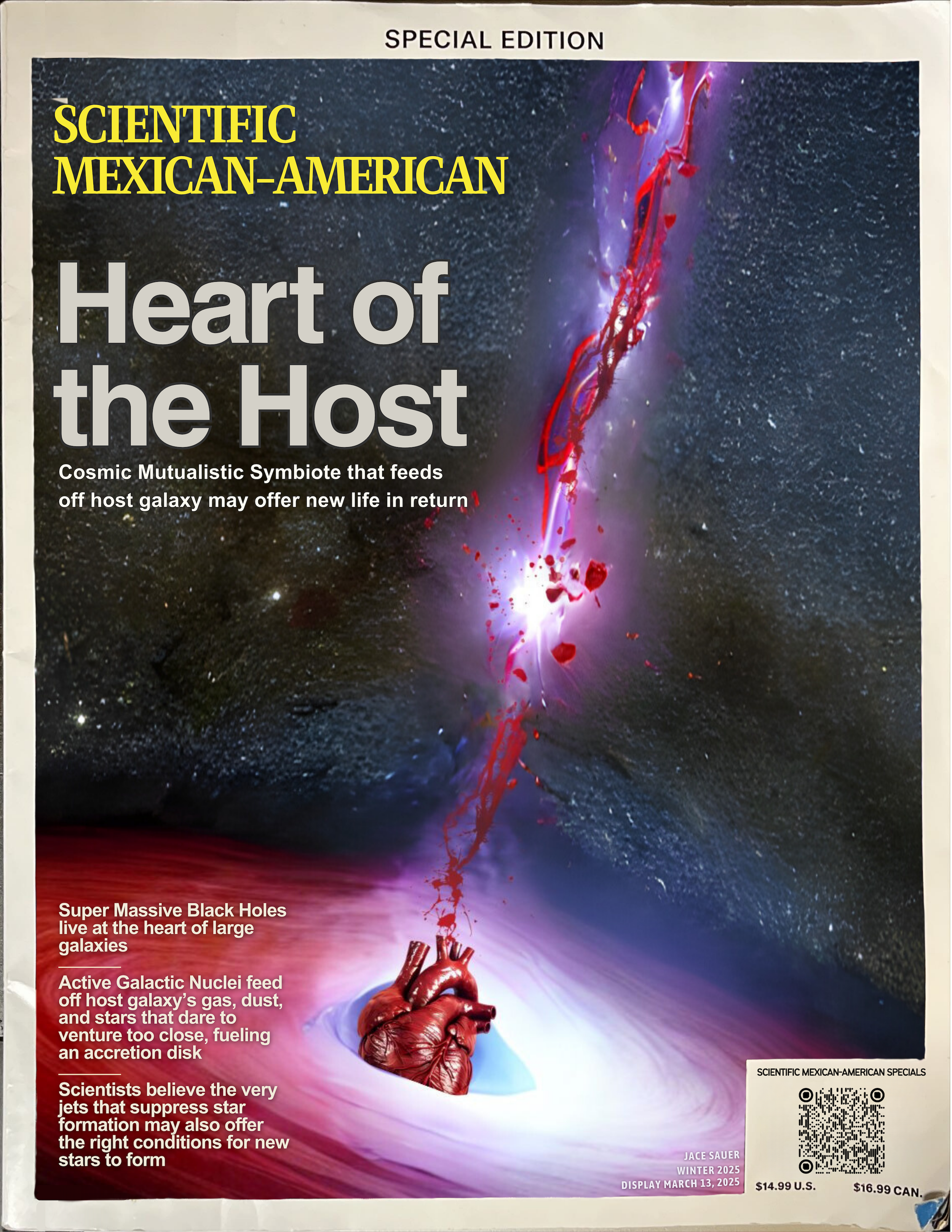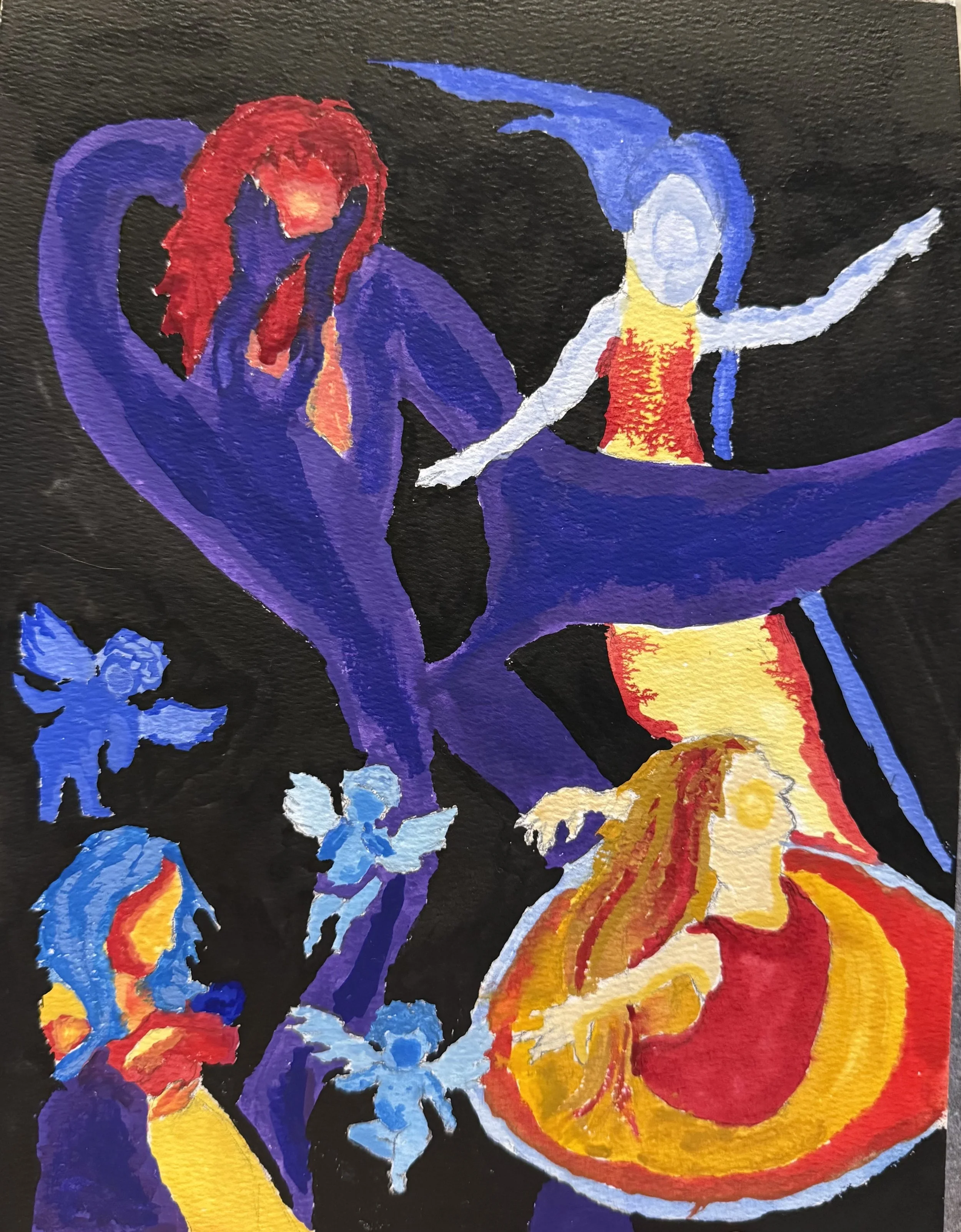“It’s not that I’m so smart. It’s just that I stay with problems longer.”
-Albert Einstein
Research by psychology expert Carol Dwek shows that when people have a growth mindset, i.e. they believe their knowledge, skills, and talents can be developed, they achieve more than those with a fixed mindset, i.e. people who believe they are born with innate, fixed capabilities. My educational philosophy in all settings is centered around developing a growth mindset by fostering a safe environment where students are encouraged to ask questions, think critically, and take risks to explore the Universe around them.
Courses
ASTR 323 - Extragalactic Astro
In this course for undergraduate astronomy majors, we explore the incredible diversity of galaxy evolution through an observational lens. Students engage with current research, contribute to the broader pool of knowledge by advancing Wikipedia pages, and develop a personal connection through a final creative project shared in an art gallery.
ASTR 512 - Galaxy Evolution
In this course for graduate students in astronomy, we explore the complexities of galaxy evolution using established research techniques. Students explore real data to reproduce common diagnostic figures, scaling relations, and more, while also developing a Wikipedia page, and then participating in a mock debate on a current controversy in the field.
ASTR 482 - Scientific Writing
In this class (coming Spring 2026), both undergraduate and graduate students will learn different methods for approaching various pieces of scientific writing, including research publications, astrobites-like articles, pop culture magazines, and press releases.
Our Wikipedia Stats
Millions of people read Wikipedia every day, and every LLM / AI bot is trained on Wikipedia content as it is one of the largest sources of training data in the world. However, the value and impact of this knowledge is dependent on accurate and updated source material — aka academic publications. Through WikiEdu, students in my class work to make extragalactic astronomy free and accessible to the public. These projects also help develop critical research skills as students must conduct literature reviews, analyze their sources, and write effectively about their topic.
Articles Edited
>50
Words Added
>27k
Sources Added
>280
Article Views
>100k
Selected Articles With Major Improvements
ASTR 323 Extragalactic Art Projects
Research shows that combining science and art is a powerful tool for increasing engagement with scientific concepts, enhance creative and critical thinking skills, and help students better understand abstract concepts. In my ASTR 323 class, students are required to select a topic in galaxy evolution, express it through an artistic medium, and develop an accompanying artist’s statement. Below I share some select pieces from this class. If you’d like to see all of the art from this course and their corresponding artist statements, click here.
A mock front page edition of "Scientific Mexican-American" focused on representing active galactic nuclei as the heart of a galaxy. Artist: Jace Sauer
"The Spiral's Legacy" is a watercolor painting to represent various galaxy morphologies using dancing women. Artist: Charli Chambers
"Lensings in Acrylic" is a painting about gravitational lensing, distant galaxies, and dark matter. Artist: Leo Quintana
This is a watercolor painting representing the effect of supermassive black hole activity on a galaxy's evolution. Artist: Sophia Elizabeth Ariel Michael
“Ask Your Doctor About a Supermassive Black Hole!” is a parody of a pharmaceutical commercial on what an active galactic nuclei can do for a galaxy. Artist: Elliot Burdett
“Milky Way Mansion” is a parody reality TV show on the various components of a spiral galaxy. Artist: Pranathi Ramesh
“Galaxy Formation, a Ballet” is a retelling of galaxy formation through the medium of dance. Artist: Rowan Brown
“Blender Spiral Galaxy” is an exploration of a spiral galaxy’s rotation and features using the Blender software. Artist: Devanshi Singh
“Mergers”
A Collection of Poems By David Andrews
“Celestial Solitude”
A poem by Wren Writehurst
“The Dark Ages”
A poem + collage by Ishaani Purang
“Cosmic Quest: a Race Through the Expanding Universe”
A board game by Ellianna Nestlerode
“A Tour of the Milky Way (as seen by a hydrogen particle)”
A choose your own adventure video game by Annabelle Lin.
“Cosmic Crochet”
A textured crochet representation of a spiral galaxy by Thomas Brouse.
“Hubble’s Beat”
A musical composition / soundscape representing cosmic expansion and galaxy mergers by Autumn Marceau.



